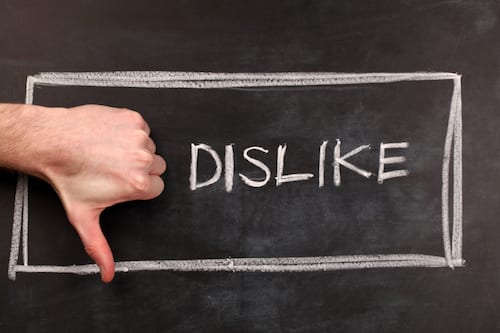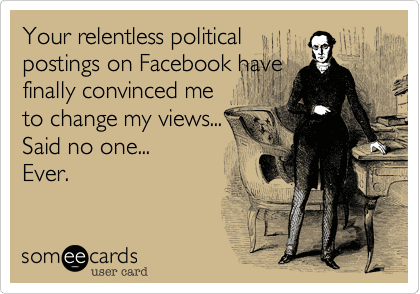7 Deadly Sins of Social Networking
Sure, being social means a lot of things.
It could mean that you are the life of the party: You’ve got that mojo to turn heads with your wit, you’ve got the one-liners and come off as just plain interesting in your own unique way. It could also mean that you’re just good at connecting with others. People who do not associate themselves with many things like to be connected to you. Or lastly, being social could mean you’re just open to anything, whether it be an opportunity to talk, make yourself known or share personal instances with your audience.
Social Networking?
Let’s tie the word “social” in with “networking”. Now we’ve got a completely different animal. Social networking involves using your social skills to connect yourself with other people and eventually friends of those other people with you. Social Networking has been perfected by some using tactics statistically proven to lure their followers in.
In this context, networks are groups of people or audiences whom your are trying to reach. However, the engineering of social networking is quite tricky. Your followers and readers are looking to get something out of you. But just like there are the gossipers and over-talkative types of social beasts in our society, so too do they exist within social media. There are rules of etiquette to abide by in order to keep those other socialites interested in you and continuously following you. Sometimes, it comes down to the basic rules of social networking that many people just do not have in the real world. Let’s take a look at seven since to absolutely avoid in order to keep your list of followers growing and engaged.
The 7 Deadly Sins
1) Over Communicating. Let other’s talk. There is such a thing as letting the other side vet the situation and allow time to respond. There’s a old saying that goes “A sign of a good conversation is when the other person speaks the most”. There’s quite a bit to this statement, but when someone feels comfortable to give you all of the feedback you’re looking for, or a desired opinion about the topic you’re addressing, this is great. However, if you disagree and squash their ideas, you could lead them away. This doesn’t mean you can’t disagree. This just means to choose your interjections carefully.
Discussion is the most valuable item on social media. Comments are priceless, help SEO and spur more visitors to come debate your topic. Let your crowd talk and dissert your wonderful ploy to get the conversation going. Giving people their voice is extremely important. Nobody likes a know-it-all and nobody likes to listen to a conversation the entire time.
2) Too Much Communication. There’s a difference between over communicating and too much communication. The perfect example I can think of here would be following Mashable’s tweets. The upside is their articles are timely and relevant. However, if they’re one of a select few people you follow on Twitter, their updates every two minutes can inundate your stream with too much information. Several people I know love the information Mashable provides, but there comes a point where Tweeting every two minutes with repetitive Tweets three times a day becomes too much. While this may not be a problem for those who follow over 2,000 other Twitter users, surely it can be problematic in an intimate setting.
3) Bland Content. Is the information you’re communicating to the world really necessary? Do people find it interesting? If you’ve answered “no” to one of these questions, you might want to rethink what you are posting on Facebook or Tweeting to the world. Sure, social networking is meant to be casual for some, but if your personal life is getting mixed with your professional life on social media, you might need to rethink your approach. This even includes the people you follow. For instance, if someone is following your website, they’ll want to be associated with you because you associate yourself to others in the same field. This all ties back to bland content. If your social profile has no clear cut path, your visitors will see you as an entity with no clear-cut direction. Make your goal to your followers clear and make each post, tweet or notice count.
4) Becoming Automated. Many services offer automated posting to all of the major social media networks. One I’ve recently discovered is dlvr.it, a service that allows the content on your website, once posted, to automatically be reflected on your various social networks via your RSS Feed. This is great news for those of you who don’t have time to post every single thing on three, maybe four frequented social accounts. But think about this more – is it really valuable to simply send a link to an article to your followers? No. What makes social networking so important is the interesting tidbits you read. The more interesting, the more visitors and clicks on your profile. Automating your social accounts is good for a foundation, but don’t let that be the only way you communicate with your followers. Reward them, and give them more information than just a post title and a link!
Note: dlvr.it also offers posting across multiple platforms in addition to posting from your RSS Feed.
5) Religious and Political Opinions. If you can start an argument at home about these two items, you probably don’t want to engage your readers with that either. Of course, this does not apply to those political websites or religious authorites. If their interests and website are deeply rooted in promoting one of those causes, obviously that’s what is being sought after. However, if you’re part of the other 99%, stay far far away. Not only will expressing an opinion over Twitter or Facebook about your affiliations cause an uproar, you are also only speaking to a portion of your audience. Communicate with information that will reach everybody. Those will be your most popular rants! If you need to speak your political or religious opinions, find those proper forums to vent.
6) Communicate Across The Board. Sure, you own your own website and share your opinions with your readers through Twitter. But your communication through Facebook is a different story. Are your Twitter followers getting more information than your Facebook Fans? Are your using one more than the other because you’re more familiar with it or have more fun with one than the other? You could be missing out on some of your biggest opportunities. Many times, the smallest nuances in your social communications could be your biggest setbacks. From my experience, many of my most popular share items were ones that were unintentionally made so. Treat all of the social media you use with equal compassion, and your fans will love you back for it.
7) Don’t Say Something You Wouldn’t Say In Person. This is a big topic these days. Many social media forms allow you to sometimes speak anonymously, or with the intent of never meeting that person face-to-face. Social media allows you to debate or say things behind a veil of anonymity. But treat the way you talk to others in such a way that they’ll never find you and you’ll lose respect quickly. Just like our day to day interactions with those we go to school, work or through recreation, you don’t want to smear one of your colleagues name in the mud, and you surely don’t want to take this approach online either. In fact, just as easy as it is to badmouth someone online, it’s just that much easier for them to form a hoard online and flip the situation around. The online crowd, particularly those with strong opinions can be easily bated into stooping to your level. This means that if you are linking your personal and professional life, make sure you do the same if your fans were to find your alter ego was a real-life jerk.
Think Before You Post
Steer clear of these 7 Deadly Sins of Social Networking and you will be more likely to draw more attention, become a respected authority on your subject and overwhelm your fans with charisma that makes you shine.











